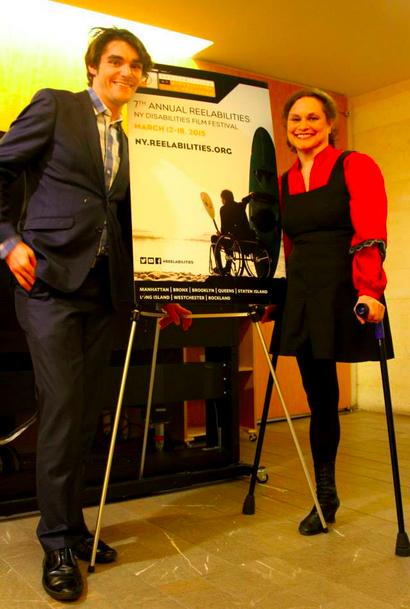
The ReelAbilities Film Festival is an annual series of film screenings, discussions, storytelling sessions and other programs dedicated to highlighting the stories of people with disabilities. It’s a chance to showcase films by and about people with disabilities — without the cliches and pitying approach associated with mainstream media.
The festival has gained considerable traction since its inception in New York City in 2008. ReelAbilities is now the largest festival of its kind in the U.S and takes place in 15 U.S. cities, each of which has multiple community screening locations. This year, the festival committee selected 25 films to screen from more than 300 submissions from all over the world. ReelAbilities just wrapped up a week-long festival in New York, which featured 100 screenings and events with 50 guest speakers.
The Mighty talked with Anita Altman, the festival’s New York-based co-founder. We asked her about the inspiration behind the festival, her goals in developing it, what she looks for when selecting films to screen and why it’s so important to have a venue to show these films. Take a look:
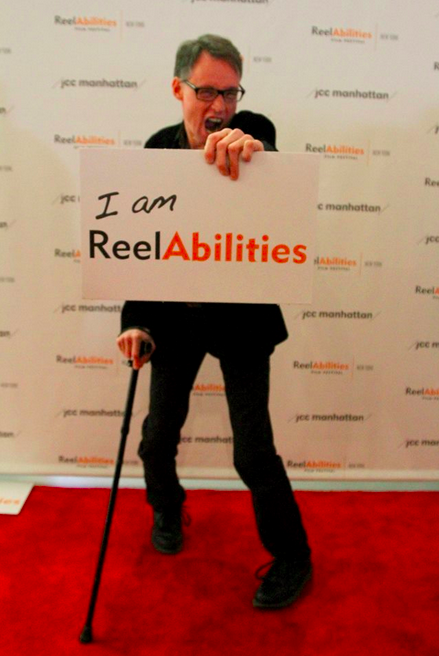
Do you remember the moment you first knew you wanted to start this festival?
There’s a long history, but I do remember exactly the moment. For the last 20 years, I’ve worked to help develop services for people with disabilities within the Federation for Jewish Philanthropy in New York. I founded a task force of people to develop services for people with special needs. We began asking, “What are the things we can do to create a more inclusive society? What do we need?” I realized we were looking at a broader society issue — the absence of people with disabilities in the public sphere. They needed to be present in our lives in way that, for most of us, they were not. The challenge, it seemed to me, was how to put a public face on people with disabilities. They are people just like the rest of us who have aspirations, desires, needs and stories to tell.
I don’t have a background in film, but I recognized that film can play an extraordinary role in raising the consciousness of a person. In 2007, I got involved with helping a filmmaker with a film called “Praying with Lior” about a young boy with Down syndrome preparing for his Bar Mitzvah. It was about his family, the impact disability has on family and also the role the family’s community played in their lives. It displayed in a concrete way to me that film can really open your eyes. I thought, “Wouldn’t it be great to have a film festival where we could play films like this for the public?” We looked around and saw that in New York, there was not such a festival.
A few weeks later, I met Isaac Zablocki, the head of the film department of the Jewish community center in Manhattan. I told him I had a dream, and he responded, ‘This is the most important thing I could do.’ Thirteen months later in the fall of 2008, we had put together the first New York ReelAbilities film festival. It was amazing.
What goals did you have in mind when you were developing this festival?
We developed three principles we’ve really stayed true to. First of all, these needed to be first-class films. These couldn’t be films of “great inspiration” or take the pitying approach. They needed to be solid films. First-rate films that had not had a commercial distribution that people wouldn’t necessarily go see in a theater.
Secondly, since this was a festival that was predicated on raising consciousness, it couldn’t be something where you just go and see the movie, then the lights turn on and you leave. There needed to be a conversation after the film where a dialogue was raised.
Third, because we wanted to foster community change, these films needed to be shown in a community. The trick was getting these films out into the communities where people live. We were in 14 locations that first year. This year, we were in in more than 50 locations, including nine different counties in the New York metropolitan area.
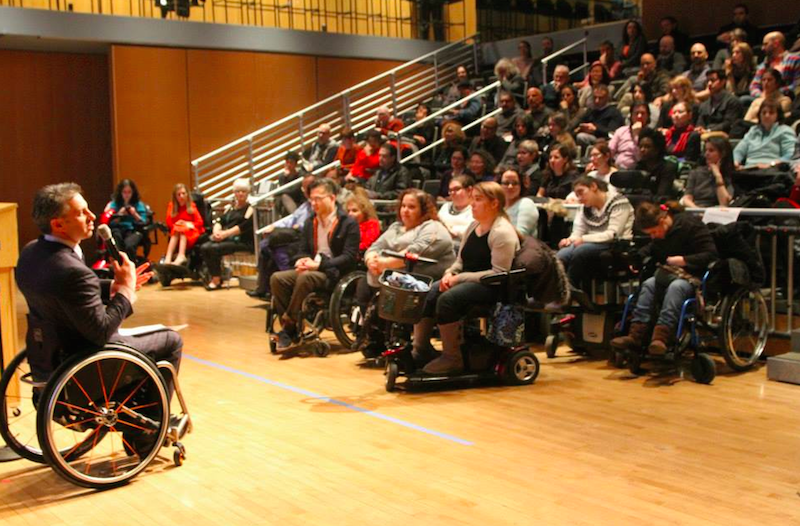
What do you look for in the films you select, other than featuring disability? Are there any specific traits you look for?
We love to screen documentaries and narrative films. We also screen films where disability is not at all a subject but it features actors with disabilities. What we look for is really engaging quality because our goal is to reach the broader community. We’ve seen a wonderful community of people with disabilities who have gravitated to the festival, but our goal has been to reach out into the larger community because our goal is to transform societal views. That has really happened over this past year — people who have no ties to the disabled community are coming to see the films.
Do you have any favorite films showing at the festival this year?
“The Finishers” — It’s a French film about a boy with cerebral palsy played by an actor who has cerebral palsy. One of the things we consider is whether the people portraying disabilities are actually disabled themselves, or are they actors who are acting the part? This film is based on a true story. The young man with with cerebral palsy has a father who was extremely athletic and has a hard time accepting his son’s disability for that reason. The young man decides he wants to compete in an Iron Man with his father. That’s when you see the transformation of the father-son relationship and see the process. It was incredibly moving.
There’s also a great documentary called “Autistic Like Me.” It’s about a group of fathers who have struggled with having a child on the autism spectrum. They come together as a support group to share their stories and build a community among themselves. It touches on the difficulty of maintaining a marriage when you have a child with a disability. It was a brutally honest portrayal with no sugarcoating — that was what I enjoyed about it.
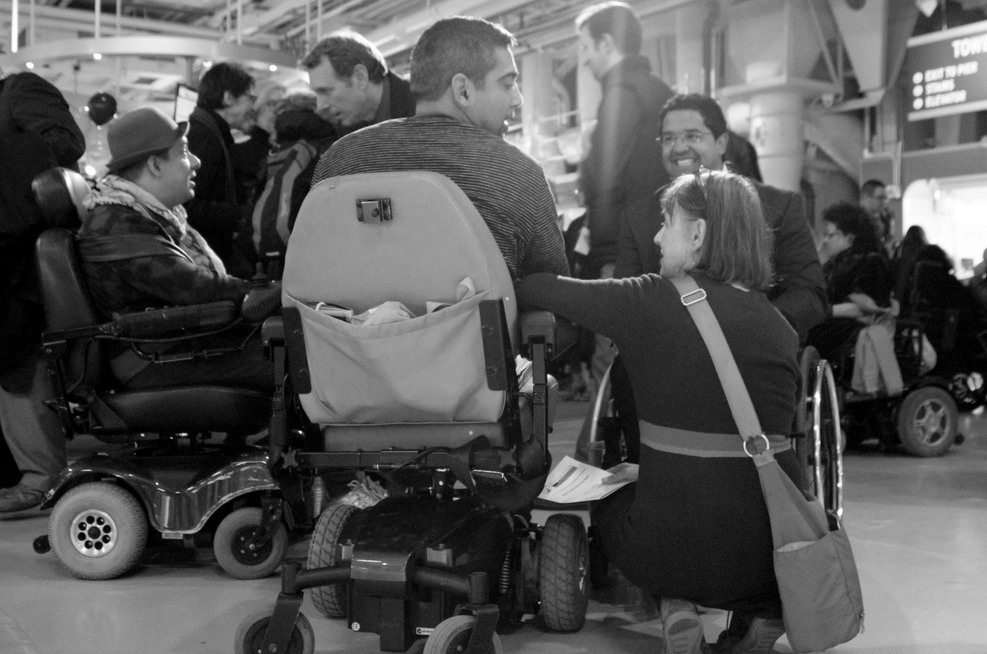
You mentioned that you consider whether an actor portraying a disability has that disability. Do you think able-bodied actors should be able to portray people with disabilities in films?
A priority for us is having people with disabilities play those parts. Those get high marks on our list of what we look for. We are less inclined to show and have turned away films that have actors without a disability portraying a disability.
That being said, if the film is extremely compelling and happens to feature [an able-bodied actor] playing someone with a disability, we show it.
Can you recall a specific moment when you realized this festival or a film made a difference in someone’s life?
Last year at the 6th annual ReelAbilities festival, we had a partnership with The Moth storytelling program. They came in and did a workshop that was open to individuals with disabilities. We helped an number of people prepare their stories, and then we gave them a platform for sharing their stories one evening at the festival. It meant a lot to them.
I also remember a particular woman in a wheelchair one year. We screened a film about dancing, which featured people in wheelchairs dancing. This woman became so moved and inspired by it that she began to dance again. It was something she thought she had lost, and she was able to recapture this important part of her life.
Here’s another one. At this year’s luncheon, people were talking about how this festival’s existence has given them the encouragement to complete their own films. Now they know there is a possible venue where their films could be screened.
Do you have any plans to expand the festival or change anything about it in the future?
We’d like to continue expanding and finding new locations. Los Angeles is a city we’d definitely want to try; we just haven’t found an organization to partner with there to get it started.
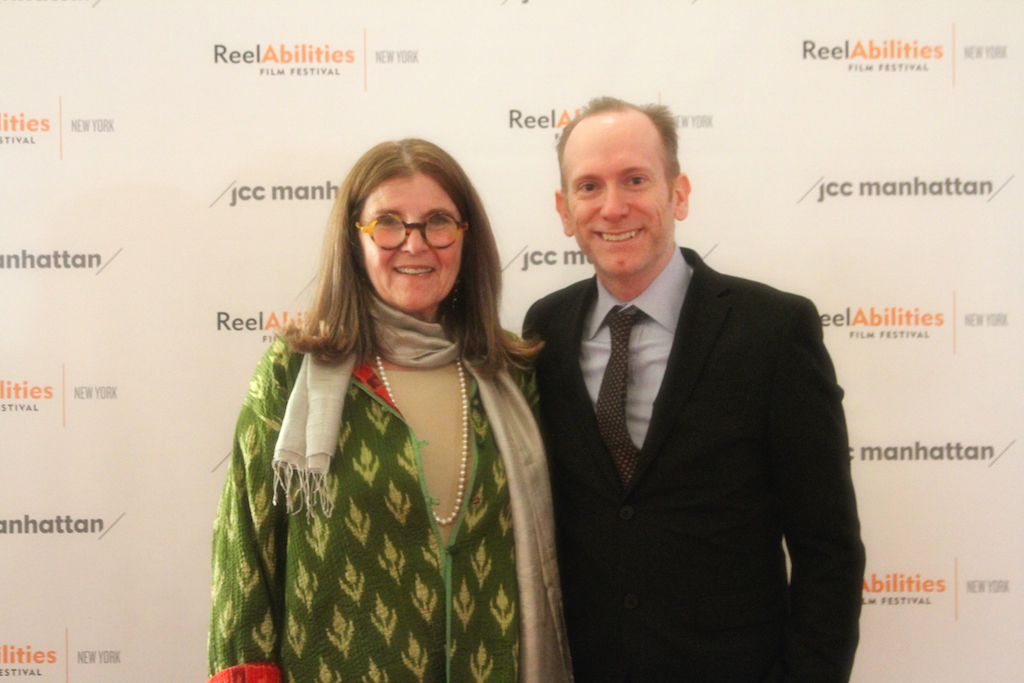
The next ReelAbilities festival will be in the greater Washington, D.C. area April 26 through May 3. To learn more about the festival or to find a screening in your community, visit the ReelAbilities website.
*Feature photo via the ReelAbilities: NY Disabilities Film Festival Facebook page.
Want to end the stigma around disability? Like us on Facebook.
And sign up for what we hope will be your favorite thing to read at night.
